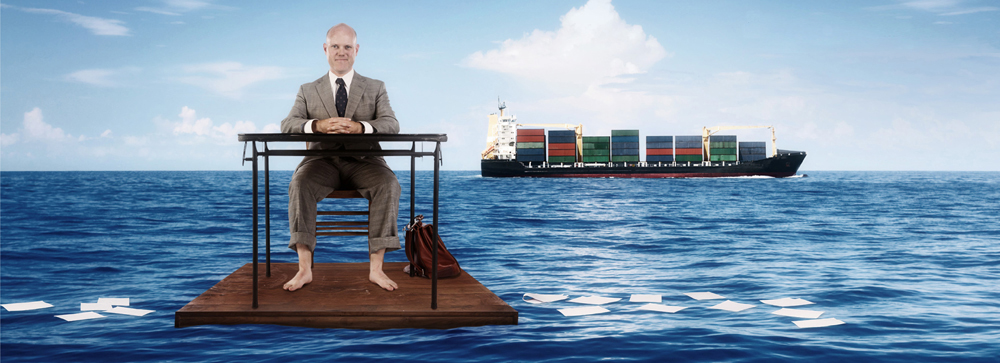August 1, 2012
by Sarah Jones, South Magazine

“A ship is like a floating city,” Colin McRae explains. “Anything that can go wrong on a landside city can happen on a ship.” But the laws that govern ships are different from those that dictate life ashore, which is why maritime lawyers like McRae, who has 13 years at Savannah’s firm HunterMaclean under his belt, are integral to Savannah’s legal scene. As the east coast’s second busiest port, it’s not a surprise the occasional mishap appears on the radar, so to speak.
You have to be prepared to go out at any moment and deal with what’s going on at the port,” McRae says, revealing some of the more exciting, albeit less convenient, parts of the job. “The calls are late at night, often on the weekends, and an inordinate amount on holidays.” These after-hours excursions are often the more adventurous part of the job. Scrambling up a rope ladder to board a ship, sometimes in six-foot seas “isn’t something someone in wing tips and a tailored suit would usually do,” he jokes.
Contrary to common belief, very rarely will a collision between two moving vessels require McRae’s expertise. Allisions, which occur when an object in motion collides with a stationary object (most often a dock or a vessel that is docked at the port), are much more common due to Savannah’s narrow port. But, most often cases are casualty related, whether it be property damage on a ship or personal injury sustained by a crewmember or a longshoreman.
A more intriguing aspect of maritime law, which comprises at least half of McRae’s case load, is the physical scale of the ships, he says, describing with enthusiasm the sheer size of many of the vessels he boards. Some of the ships are 1,100 feet long, and an engine room can be six stories high.
Such impressive size, and the novelty of ships themselves, provokes a lot of interest in his work from his friends and colleagues. “So few people ever get the opportunity to go aboard a ship. Not even everybody who works at the port can go on a ship,” McRae says.
The fascination with maritime law, because it’s so unique, can also lead to a lot of misconceptions. “People think that I deal with piracy all the time,” McRae says with a smile, confirming that he never sees a piracy case cross his desk. “People tend to think the job is a little more swashbuckling than it is.”




